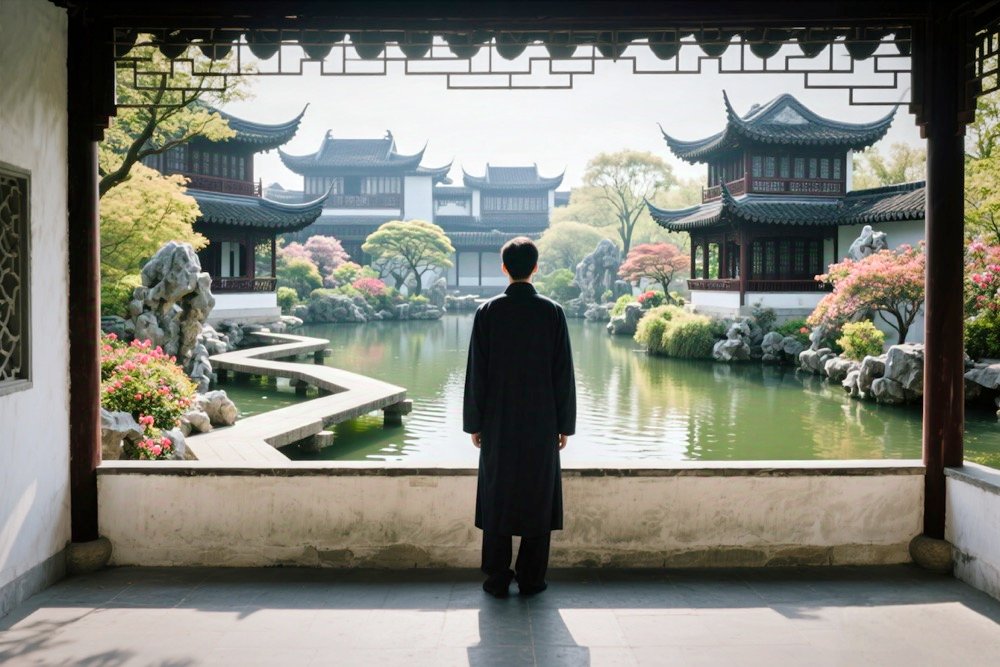Gathering Wind, Collecting Qi:
Environmental Wisdom in Feng Shui Philosophy

Strolling through a classical Suzhou garden, you’ll notice pavilions, rockeries, and ponds arranged deliberately—never randomly. Curved paths hint at deeper meaning; bridges open to vistas, achieving the ideal of “human-made, yet heaven-inspired.” This embodies Feng Shui philosophy (Kanyu, 堪舆学) and its profound insights into human-environment harmony.
Gathering Benevolent Winds, Collecting Vital Qi
Rooted in Chinese philosophy (especially the Yijing’s Yin-Yang and Five Elements), Feng Shui is a unique system for selecting, optimizing, and creating living spaces (yang dwellings) and burial sites (yin dwellings). Beyond superstition, it reflects ancient observations of nature, pursuing harmonious coexistence (和谐共生) between humans and their natural (“Heaven”) and built (“Earth”) environments. Its core goal: “gathering benevolent winds, collecting vital Qi” (藏风聚气) to nurture health, peace, and prosperity.

Key principles include:
- Assessing “dragon vein” landforms
- Orienting structures (e.g., south-facing)
- Balancing Qiflow and concentration
- Harmonizing Yin-Yang/Five Elements
- Leveraging natural features (mountains, water, wind, light) to optimize energy
Spatial Energy Equilibrium Concept

Today, Feng Shui is increasingly valued as environmental planning aesthetics and a spatial energy equilibrium concept. It inspires modern applications:
- Enhancing spatial flow (avoiding constriction)
- Prioritizing light/ventilation (health-focused)
- Zoning functional areas (dynamic vs. quiet)
- Choosing materials/colors (elemental balance)
—all fostering harmonious living spaces.
Understanding Feng Shui’s essence empowers wiser human-environment interactions, transforming homes, offices, or commercial space layout consultancy (商业空间布局咨询) into thriving, balanced sanctuaries.